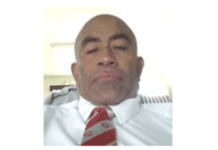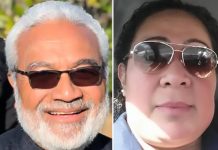The Mormon church’s plan to digitise Tonga’s births, deaths, marriage and other documents would benefit the nation, Deputy Prime Minister Semisi Sika said today.
Hon. Sika, who is also a Mormon, said the government could not digitise its official records.
He said the Church of Jesus Christ of Latter-day Saints’ Family Search programme could access the government records.
Hon. Sika said if a tsunami or fire destroyed the buildings where the records were kept that would be the end of it.
He told Kaniva news Tonga was not the only country to allow the Mormons to digitise its records.
He said the Mormon applied to digitise the records during Lord Tu’ivakano’s government.
Final endorsement
He said the Pōhiva government finally approved the church’s application after it was submitted through the Ministry of Justice.
Hon. Sika said the application was then returned to the Ministry of Justice for processing.
He said the process was slow but he was following it up.
“This will benefit and bless our country,” he said.
What is FamilySearch?
FamilySearch, formally known as the Genealogical Society of Utah, was founded in 1894. It is dedicated to preserving family records.
According to the Latter Day Saints’ Family Search website, the Church of Jesus Christ of Latter-day Saints is the primary benefactor for FamilySearch services.
It said members of the church used family history records to perform baptisms, marriages and other church rites.
These include baptising on behalf of the dead, a rite in which a living person stands in as a proxy for a dead relative.
However, the names of the dead who have had baptisms performed for them are not added to the membership records of the Church.
FamilySearch holds more than three billion records and offers services which include image capturing, digital conversion, preservation, online indexing and access.
Tonga not the only country to take part
Last year South Australia partnered with the Mormon to digitise its official records including social welfare records, family history, and school admissions.
Other states of Australia including Victoria, New South Wales and Tasmania have also had agreements with the Mormon in the past.
“The partnership with FamilySearch allows us to increase that reach so that members of the public who live in regional areas who aren’t able to get to our Gepps Cross site or who live nterstate or overseas, are able to actually access the records of the state of South Australia,” Director of State Records of South Australia, Simon Froude told ABC Radio in Adelaide.
In 2013 the Papua New Guinea government announced that it had partnered with the Mormon to digitise the nation’s birth, death and marriage archives in an effort to protect the records from decay and natural disaster.
Hon. Sika said he understood the Niuean government has just agreed to let the Mormons digitise its records before the latest tropical cyclone struck the country and destroyed its archives.
Not everyone happy with the project
In 2001 it was reported that the New Zealand Internal Affairs Department had considered handing over four million births and deaths records to the Mormons in the United States as one option for preserving the old documents.
However, the proposal upset the Maori community which said it could have led to their ancestors being posthumously baptised as Mormons.
At the time, the Wellington Tenths Trust managing trustee Peter Love condemned the proposal.
Mormon authorities could not be reached for comment.
The main points
- The Mormon church’s plan to digitise Tonga’s births, deaths, marriage and other documents would benefit the nation, Deputy Prime Minister Semisi Sika said today.
- Hon. Sika, who is also a Mormon, said the government could not digitise its official records.
For more information
Why does the Mormon Church want state records? And what do they do with them?







